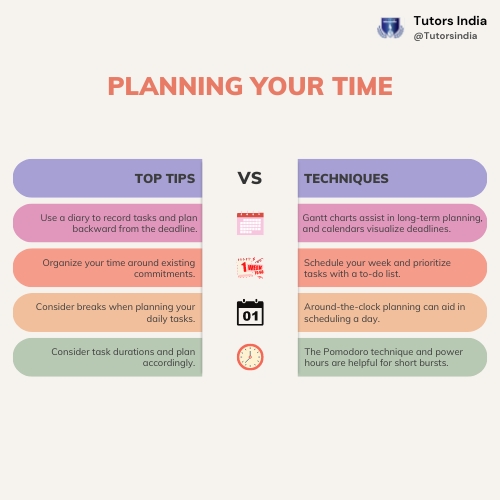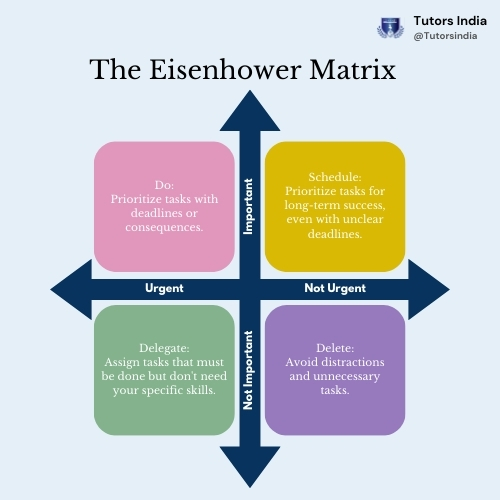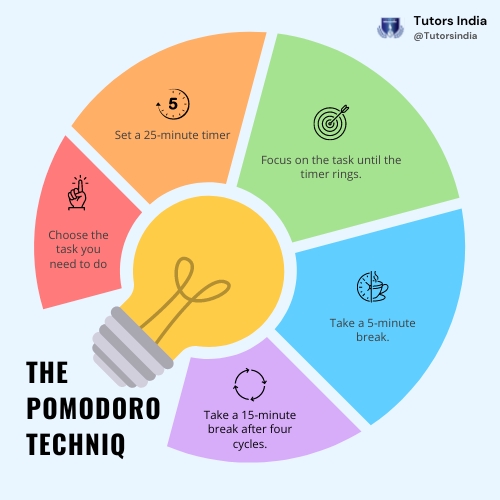Basics of Time Management for Students
Importance of time management
The time during university is challenging for many students, where mastering the art of time management is a critical yet complex skill to master.
Balancing class attendance, exam preparation, maintaining friendships and time for relaxation can be stressful for students.
- Check out our dissertation example on academic stress and time management to know more about how crucial it is for master’s students to manage time effectively.
Successful time management involves balancing your academic responsibilities, university or college commitments, and leisure activities. For students, organizing your daily routine not only alleviates stress but also enhances productivity. Embracing fundamental time management principles, including prioritization, effective scheduling, and maintaining a healthy sleep routine, contributes to the overall well-being of students. However, to truly maximize the use of their daily hours, students need to adopt a more strategic approach to managing their time effectively.
The following section discusses some useful time management tips for students:

- Dedicate some time for planning
Allotting some time to research and planning is fundamental in effective time management. Set some time apart to process new information and plan how you are going to spend it. This approach helps prevent unnecessary repetition.
Making a list of everything you want to find out before you start researching is one excellent way to plan time, since you can write notes under each subsection as you go.
- Prioritize important tasks
Create a ‘to-do’ list for tasks and categories them based on importance and urgency. This helps a student to dedicate more time and effort to those tasks that matter. Tools like the Eisenhower Matrix may be beneficial.

- Set Realistic goals
Unexpected situations may arise at times, or you might find yourself unable to complete all your intended tasks within a day. It’s important to be patient with yourself when things do not go as planned. While creating your ‘to-do’ list, it’s crucial to set realistic expectations about what you can feasibly achieve. Incorporating buffer time, especially when uncertain about task durations, can be a helpful strategy. This approach minimizes hurdles, ensuring a hassle-free path toward your goals.
- Allocate time for tasks
Setting up a study or hobby time can significantly enhance your time management skills. Going with the flow and carrying out the tasks that seem most appealing might be detrimental. Instead, adhere to a predetermined schedule. If you’ve allocated 5 pm to 8 pm for studying, commit to that timeframe.
This structured approach not only promotes concentration and productivity but also ensures that you can read your favorite book at 10 pm, as opposed to neglecting your initial study plans. Once you’ve accomplished your scheduled tasks, you can then indulge in activities of your choice.
- Break down assignments and projects
Handling large tasks often seem overwhelming, but dividing them into smaller, manageable ones makes them much more feasible. Assign specific deadlines to each of these smaller tasks to maintain focus and ensure the timely completion of the overall task.
For instance, if you are writing a dissertation, dedicate 2 hours for data collection, 2 hours for writing introduction and so on.
- Take Regular Breaks
Although it might seem counterintuitive, incorporating regular breaks into your work routine can enhance productivity. Short breaks, whether it’s stretching, switching to another task briefly, or taking a stroll, refresh your mind and increase focus.
One effective method to consider is the Pomodoro Technique, a time management approach wherein short periods of focused tasks are followed by periods of short breaks. This technique works on the principle that it is simpler to focus on a task for a shorter duration, and regular breaks help reduce fatigue and boost concentration.

- Set time for yourself
Effective time management extends beyond completing tasks—it involves prioritizing your well-being. Include some time for self-care into your schedule to maintain a healthy balance in life and safeguard your mental health. Having anticipatory activities during stressful phases can also be beneficial.
Be it yoga, a day out with friends or regular naps on Sundays, securing time for relaxation and activities you cherish helps you maintain a balance between work and life.
Conclusion
Mastering time management emerges as a critical skill in academic life. Balancing academics, connections with others, and personal time is crucial. The importance of prioritization, strategic planning, and self-care cannot be stressed enough. Implementing these concepts reduces stress while also increasing productivity. To effectively balance academics and personal life, students must adopt a strategic approach to time management. They maximize efficiency by planning, prioritizing, and taking breaks. This strategy ensures not only that the work is completed on time but also a balanced life, one in which achievements are balanced with intervals of satisfaction and self-renewal.
About Tutors India
At Tutors India, we understand the challenges faced by university students in balancing academic and personal life, which affects their quality of efforts they put in their coursework and dissertation. Therefore, we have a team of experts who offer customized help to students, alleviating the challenges of research and structuring their coursework and dissertation. Our commitment to personalized assistance empowers students to manage time effectively, fostering a balanced academic life where quality work meets timely submission.
Check out our samples to know more about how assignments and dissertations are written in various fields.
